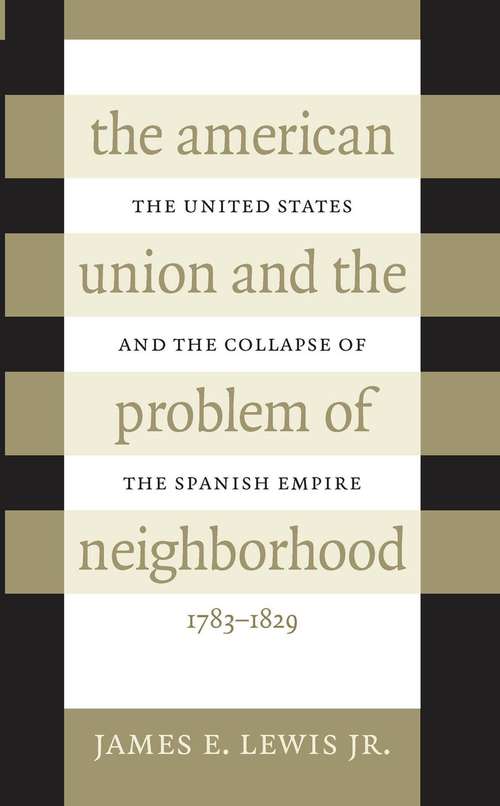The American Union and the Problem of Neighborhood
By:
Sign Up Now!
Already a Member? Log In
You must be logged into Bookshare to access this title.
Learn about membership options,
or view our freely available titles.
- Synopsis
- In this book, James Lewis demonstrates the centrality of Americanideas about and concern for the union of the states in thepolicymaking of the early republic. For four decades after thenation's founding in the 1780s, he says, this focus on securing aunion operated to blur the line between foreign policies anddomestic concerns. Such leading policymakers as Thomas Jefferson, James Madison, James Monroe, John Quincy Adams, and Henry Clay worried about the challenges to the goals of the Revolution that would arise from a hostile neighborhood--whether composed of new nations outside the union or the existing states following a division of the union. At the center of Lewis's story is the American response tothe dissolution of Spain's empire in the New World, from thetransfer of Louisiana to France in 1800 to the independence ofSpain's mainland colonies in the 1820s. The breakup of theSpanish empire, he argues, presented a series of crises for theunionist logic of American policymakers, leading them, finally,to abandon a crucial element of the distinctly American approachto international relations embodied in their own federal union.
- Copyright:
- 1998
Book Details
- Book Quality:
- Publisher Quality
- ISBN-13:
- 9780807866894
- Related ISBNs:
- 9780807824290, 9780807847367
- Publisher:
- The University of North Carolina Press
- Date of Addition:
- 01/05/16
- Copyrighted By:
- The University of North Carolina Press
- Adult content:
- No
- Language:
- English
- Has Image Descriptions:
- No
- Categories:
- History, Nonfiction, Politics and Government
- Submitted By:
- Bookshare Staff
- Usage Restrictions:
- This is a copyrighted book.
